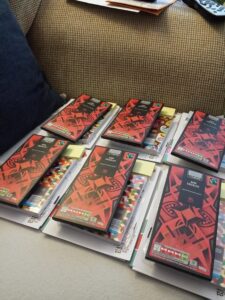Consider It Now
An examiner could gently challenge you on why you didn’t use a certain method. Or they might wonder what would happen if you did X instead of Y. What if you had tested for this instead of that, and so on.
It’s reasonable to expect that kind of a question in the viva. It’s not unreasonable to say, “I’ve not considered that before,” or perhaps, “I don’t know, I’ve not thought about that…”
…but it’s better to say, “Let me think about that now,” and then consider and give the best response that you can.
It might not be the full picture. It might not be an answer. It could be that you can’t say everything you might want to. But for any question or line of discussion that you’ve not considered before, you can consider it now.
Take the time. Show what you know, show what you can do. If an examiner has asked you a question, it’s not to trick you or trap you: they’re giving you an opportunity to demonstrate something.
Not considered it before? Consider it now, then talk.
